
A maritime museum is a museum specializing in the display of objects relating to ships and travel on large bodies of water. A subcategory of maritime museums are naval museums, which focus on navies and the military use of the sea.

The Sea Cadet Corps is a national youth charity. It is present in England, Scotland, Wales, Northern Ireland, Malta and Bermuda. Cadets follow an ethos, training plan and rank structure similar to that of the Royal Navy, and are recognised by the UK Ministry of Defence.
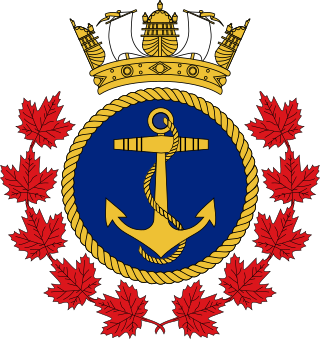
The Royal Canadian Sea Cadets is a Canadian national youth program sponsored by the Canadian Armed Forces and the civilian Navy League of Canada. Administered by the Canadian Forces, the program is funded through the Department of National Defence, with the civilian partner providing support in the local community. Cadets are not members of the Canadian Armed Forces.
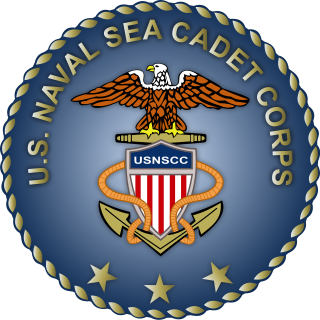
The United States Naval Sea Cadet Corps is a congressionally chartered, U.S. Navy-sponsored organization that serves to involve individuals in the sea-going military services, U.S. naval operations and training, community service, citizenship, and teach an understanding of discipline and teamwork. The USNSCC is composed of two programs; the Navy League Cadet Corps (NLCC), which is for cadets ages 10-13, 5th grade through 8th grade; and the senior program (NSCC), which is for cadets ages 13-18.

The International Air Cadet Exchange is an annual student exchange program designed to promote character, good-will, and cooperation among the world's civilian auxiliary aviation programs. Participants come from organizations such as the Air Training Corps, Girls Venture Corps Air Cadets, Australian Air Force Cadets, United States Civil Air Patrol, German Society for Aeronautics and Astronautics, Royal Canadian Air Cadets, Turkish Aeronautical Association, Hong Kong Air Cadet Corps, Singapore National Cadet Corps, along with fifteen other equivalent groups in other nations. Cadets spend approximately two weeks every July/August with their foreign counterparts. The first exchange occurred in 1947, between the United Kingdom and Canada.

The Marine Society is a British charity, the world's first established for seafarers. In 1756, at the beginning of the Seven Years' War against France, Austria, and Saxony Britain urgently needed to recruit men for the navy. Jonas Hanway (1712–1786), who had already made his mark as a traveller, Russia Company merchant, writer and philanthropist, must take the chief credit for founding the society which both contributed to the solution of that particular problem, and has continued for the next two and a half centuries to assist many thousands of young people in preparing for a career at sea.
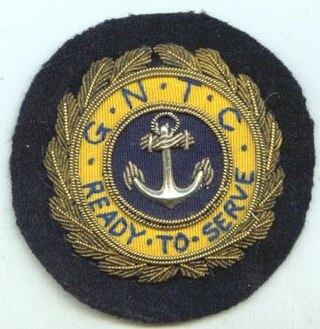
The Girls' Naval Training Corps was formed as part of the National Association of Training Corps for Girls in 1942, with units mainly in Southern England. Its objective was congruent with that of the Sea Cadet Corps, teaching girls aged 14 to 20 the same seamanship skills as the SCC taught the boys, in preparation for service with the Women's Royal Naval Service.
The Navy League refers to various organisations worldwide:
The International Sea Cadet Association, referred to as "the ISCA", is a voluntary association of independent Sea Cadet Corps or corresponding organizations, committed to common concepts and goals, and wishing to share ideas and information, and, to the best of their ability, to engage in cadet exchanges and to provide mutual support in order to promote the benefits of Sea Cadet training worldwide.

The Bermuda Sea Cadet Corps was created in 1966 and registered as a charity under the Bermuda Sea Cadet Association Act, 1968. The first unit had actually been created two years earlier.
The Royal Belgian Sea Cadet Corps is a Belgian non-profit youth organisation whose purpose is to stimulate teamwork and discipline in individuals from the age of 12, while teaching other important skills and values such as first aid, navigation and linguistic skills, operating a vessel, military drill and much more. The organization receives support from the Belgian Ministry of Defense.
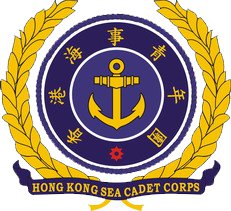
Hong Kong Sea Cadet Corps is a youth organization based in Hong Kong and formed in 1968 by former Royal Naval Reserve officers by the creation of Hong Kong Law
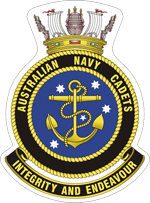
The Australian Navy Cadets (ANC) is a leading national youth development organisation, with the character and values of the Australian Navy, founded on a strong community partnership, fostering and supporting an ongoing interest in the Australian Navy.
Cadets or cadet corps are voluntary youth programs sponsored by a national military service or ministry of defence. These programs are aimed to provide youths with activities associated with military or paramilitary training, including drills, physical fitness, and education. Although these youth organisations are modelled after their sponsoring military service, they do not form a part of these services nor do they constitute a military service in their own right.
 Australia:
Australia:  Belgium: Royal Belgian Sea Cadet Corps
Belgium: Royal Belgian Sea Cadet Corps  Canada:
Canada:  Germany:
Germany:  Hong Kong: Hong Kong Sea Cadet Corps
Hong Kong: Hong Kong Sea Cadet Corps  India: Sea Cadet Corps (India)
India: Sea Cadet Corps (India) Japan: Junior Sea Friends' Federation of Japan
Japan: Junior Sea Friends' Federation of Japan South Korea: Sea Explorers of Korea
South Korea: Sea Explorers of Korea Netherlands: Sea Cadet Corps The Netherlands (Zeekadetkorps Nederland)
Netherlands: Sea Cadet Corps The Netherlands (Zeekadetkorps Nederland) New Zealand:
New Zealand:  Portugal: Portugal Sea Cadet Corps (Corpo de Cadetes do Mar de Portugal)
Portugal: Portugal Sea Cadet Corps (Corpo de Cadetes do Mar de Portugal) Russia: Sea Cadet Corps (Russia)
Russia: Sea Cadet Corps (Russia)  Singapore: Singapore National Cadet Corps (Sea)
Singapore: Singapore National Cadet Corps (Sea) South Africa: Sea Cadet Corps (South Africa)
South Africa: Sea Cadet Corps (South Africa) Sweden: Swedish Sea Cadet Corps
Sweden: Swedish Sea Cadet Corps  United Kingdom:
United Kingdom:  Bermuda (British Overseas Territory): Bermuda Sea Cadet Corps
Bermuda (British Overseas Territory): Bermuda Sea Cadet Corps  United States:
United States:  Zimbabwe
Zimbabwe 








